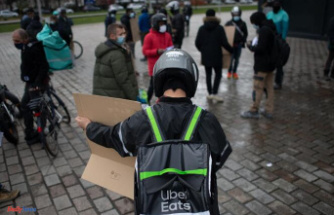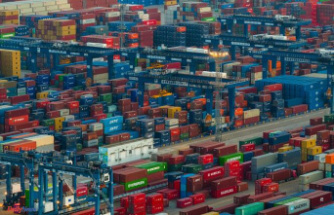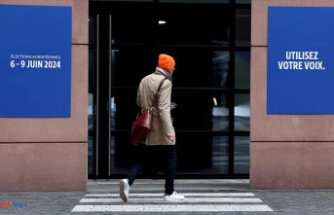Despite high costs and customers battered by high prices, the strawberry season went largely satisfactorily from the perspective of growers in the north-east. The cost pressure makes you inventive.
Rövershagen (dpa/mv) - Despite difficulties such as high costs and a large supply at times, the strawberry growers in the north-east draw a conciliatory balance of the season. In view of the turbulent year, one is satisfied, said Robert Dahl from Karls Erdbeerhof in Rövershagen near Rostock, the largest grower in the north-east with around 400 hectares, the German Press Agency. They harvested about ten percent more than last year and sold "quite well", albeit a little cheaper than last year.
"Overall, it was just a good harvest." That leads to cheaper prices. Rolf Hornig from the fruit and vegetable growers' association said that the heat meant that different varieties were ripe at the same time. Also because of the volume, the farms could not have passed on the increased costs for fertilizer, fuel or personnel directly. Nevertheless, companies that market directly or have them picked themselves probably got their money's worth. The customers, who were shaken by the high prices, were not as cautious as they were with asparagus, for example.
Hornig referred to preliminary figures, according to which 8,400 tons of strawberries were harvested on 500 hectares in the northeast this year. That is 168 quintals per hectare. According to the Federal Statistical Office, the yield in the previous year was 137 quintals per hectare. Most of the harvest has been brought in. However, the amount will still increase. Two farms would harvest even longer. This also includes Karl's strawberry farm, where varieties are grown that also bear fruit in autumn.
Yvonne von Laer from Mecklenburger Freshness in Tieplitz near Güstrow was also satisfied overall. With increased spending, efficiency is becoming more and more important. With them, the pickers earned between eleven and twelve euros. "The good people are between 15 and 18 euros per hour, net." According to Dahl, despite the Ukraine war, more guest workers could be won from there than feared, as well as workers from Romania.
Jan van Leeuwen from the Glantz strawberry farm in Hohen Wieschendorf (Northwest Mecklenburg district) speaks of a positive course of the season, "certainly with ups and downs". The summery weather must have made customers want strawberries. His farm cultivated and harvested on around 80 hectares. Because of the costs, attempts are being made, among other things, to reduce the use of fertilizer.
It was similar at Karl's strawberry farm. Here, to save costs, software is also used to calculate optimal routes to the sales stands. "So, crazy enough, we really used less diesel for the first time this year than last year," said Dahl. Even tests with a picking robot have been running for some time. It will be a while before it works properly. Dahl is concerned that in a few years regional strawberry cultivation could no longer function without automation because prosperity would increase in other countries and guest workers could stay away.
Overall, according to recently published figures from the Federal Statistical Office, the strawberry harvest in Germany is smaller than it has been for more than 20 years.












